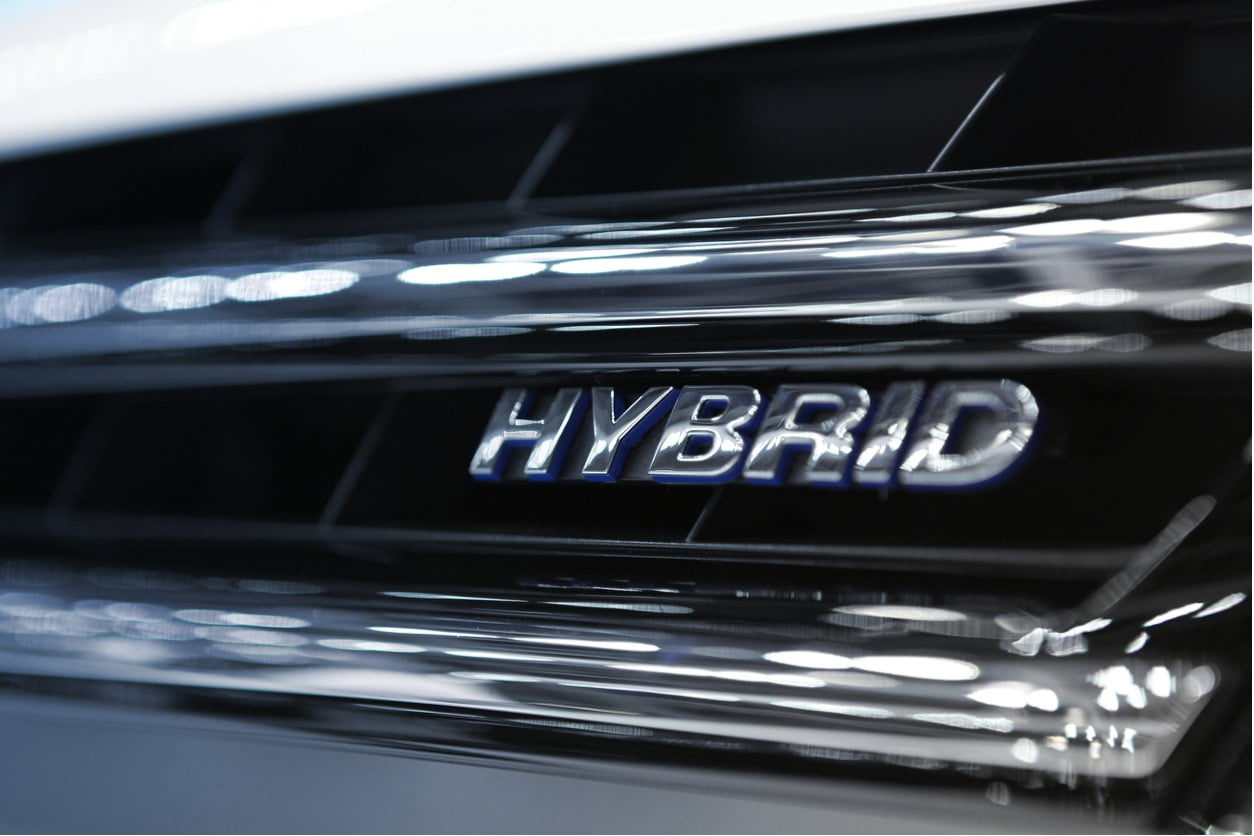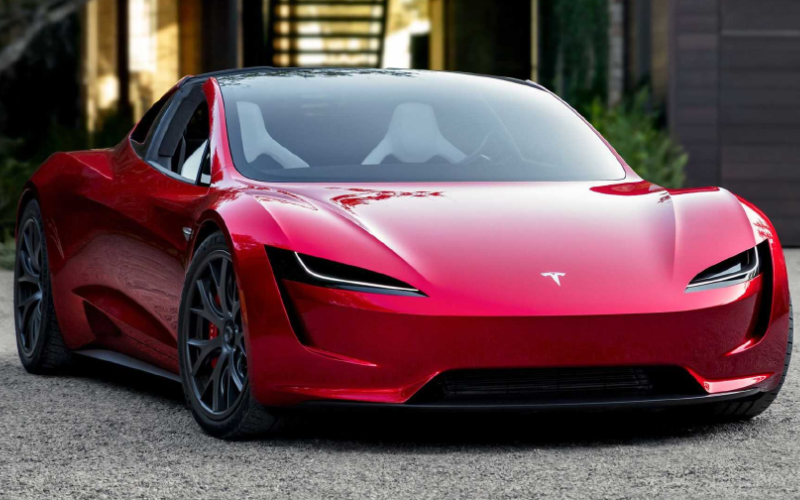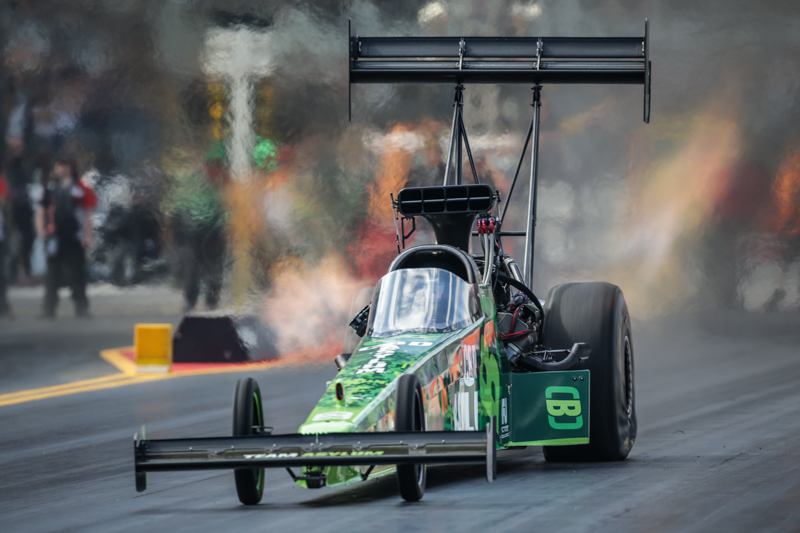The automotive industry is finally starting to electrify. Even luxury brands like Audi, Jaguar and Porsche have joined the all-electric ranks. New legislative commitments put in place by multiple world governments will mean that between 2030 and 2040, the creation and sale of new gasoline and diesel vehicles will be consigned to the past in many parts of the world.
While the improving technology and lengthening single-charge range of new electric cars has been enough to persuade many people to make the switch, others dither. The shift to pure electric is too much of an ask, and so they stick with what the know. Since the late 1990s, however, there has been an alternative to this dichotomy of gasoline and electric, however, and that’s the hybrid car.
Hybrid Cars – The Middle Ground
You have likely all heard of hybrid cars, but how much do you really know about them and the technology that makes them work? In today’s article we’re taking an in-depth look into the world of hybrid cars. Their champions call them the “best of both worlds” while proponents of electric vehicles say they are a needless prolonging of the gasoline-powered automotive world.
We have structured today’s piece to help answer a series of the most common questions surrounding hybrid cars and the technology on which they run. We will also ask about their future, given that they are now included in the cars to be banned when the time for fuller electrification comes.
What is a Hybrid Car?
Let’s start right at the beginning to allow the uninitiated to catch up. A hybrid car is one that combines systems from both traditional gasoline and modern electric technology. When running at very low speeds, such as the times you are in heavy traffic, the car will make use of electric-only driving in order to conserve gas. As you gather speed, however, which ordinarily would tax the battery, the car switches seamlessly over to gasoline mode, allowing you to drive using gasoline only when it’s more efficient. This also saves gasoline.
Traditional hybrids, though partially powered by electrical components similar to those in electric cars, do not require plugging in. While some newer models are known as “Plug-in Hybrid Vehicles,” or PHEVs, the majority of them run on the regular hybrid model. On these powertrains, the combustion engine will actually work to recharge the hybrid battery while it’s in operation. So, if you wear your battery down to, say, 40 percent while commuting, as you pick up speed, the gasoline engine recharges and restores the energy. Modern hybrids also make use of regenerative brake technology, which captures some of the kinetic/mechanical energy you create when braking and sends that back to the hybrid battery pack.
What Are the Advantages of Hybrid Cars?
Whether you’re a critic or a fan, there are a number of advantages that hybrid cars have over both gasoline and all-electric models:
No Plug-in Charging:
For the majority of hybrid models, there’s no need at all to plug the car in. You just fill it up with gas, and allow the gasoline engine to recharge the electric battery as and when it can or needs to. This means there’s no need for additional home-based charging infrastructure, nor need you worry too much about the lack of electric-only range. As long as you have gas in your tank — which you would have likely always done with a regular car — you will have a working electric component for low-speed driving.
Minimal Transition:
Because there’s no additional need for charging infrastructure or making a switch to a focus on charging from a focus to filling up the gas tank, the transition from gasoline car to hybrid car can be seamless and painless. As a society, we have generally become used to the refueling lifestyle, visiting gas stations as and when we need to in order to top up, and never worrying about doing any of that at home. With a hybrid car, you can continue along that vein, while also gaining the benefits of a hybrid powertrain.
Huge Gas-Mileage Improvements
It is no surprise that with so much of the low-speed driving handled by the electric powertrain, hybrid cars make huge improvements on gas mileage. On more compact cars, the difference is noticeable, but it’s with full-size hybrid sedans and hybrid SUVs where the effects are really felt. You may have never thought a car the size of the Toyota RAV4 could go more than 40mpg, but the hybrid version certainly can.
The differences in gas-mileage can mean annual fuel savings of hundreds of dollars. The regular RAV4 isn’t exactly breaking the bank at an estimated $1100 a year in fuel according to fueleconomy.gov, but the RAV4 hybrid cuts that even further to $800 annually.
Affordable
Unlike their all-electric counterparts, hybrid cars start at very low rates. The Hyundai Ioniq is probably the most affordable at a starting price of just $24,500 in the 2021 model year. In contrast, the very cheapest electric car you could get in 2020 was the Mini Cooper SE, which started at $30,750. Most other models, even budget-friendlier ones, start in the $31,000-32,000 area, and ranging up massively when you throw in all the additional extras. The Nissan Leaf EV goes from $32,000 to about $45,000 in total. The Toyota Camry Hybrid, on the other hand, starts at $27,270, and goes up to just $32,720 for the top-end XSE trim, which comes with many additional comforts. Even when you factor in government subsidies and rebates, they often remain significantly more expensive to purchase.
When it comes to running costs, the main advantage for hybrid cars is in how much they save in gas costs, even on already-efficient gasoline models like those from Toyota. Overall, however, you may find that the running costs of electric cars are lower since they don’t depend do heavily on the price of oil.
What Are Some Problems with Hybrid Cars?
In the interests of balance, and presenting the more comprehensive guide to hybrids as possible, we should now note some of the drawbacks that come with hybrids:
Sluggish Acceleration
It has to be said that hybrids are not exactly built to high-performance specifications. Their acceleration is often very slow, and drivers have noted their struggles to handle steep gradients or situations where a bit of pep when leaving the spot would be necessary, such as pulling out from a busy intersection.
The Toyota Prius, arguably the most iconic and certainly the longest-serving hybrid car of any range, is still struggling to break the 10-second barrier when it comes to the 0-to-60 jump. The Honda Insight offers slightly better at about 7-8 seconds depending on specific trim level. These two are the longest-standing hybrid models out there, and even in 2020 are not showing great improvement when it comes to performance. As the next video shows, however, a Prius might go faster with a few adjustments:
Flipped Gas-Mileage
Fuel efficiency is undoubtedly better than gas-only models, but one curious phenomenon is how hybrid cars miles-per-gallon numbers always look the wrong way round. The city mpg numbers are always far better than the highway numbers. Now, that can be an advantage if you’re an urban driver, as many people are in places like New York and Los Angeles. If, on the other hand, you live in the suburbs or places where you’re getting significant highway mileage, you’re not necessarily getting the maximum benefit. This is a fairly minor problem, however, as the numbers still work out better overall, wherever you’re driving.
Limited Range
Outside of the Toyota range, which has hybrid variants on almost all available models — 10 in the 2021 model year — other brands don’t have a great deal to choose from. You’ll find Toyota, Honda, Kia and Hyundai have good selections, while others are still playing catch-up. Ford has a pretty good range, but on the whole, you are left looking at Toyota when you want the most choice. It’s hard to guarantee a style that reflects who you are when you have so few options.
Limited Time on Sale
Depending on where you are in the world, your hybrid options are about to get a lot fewer, with countries around the world, and already a number of states in the US, pledging to rid the world of any vestige of gas-powered cars (including hybrids) by sometime between 2030 and 2040. It’s therefore fairly unlikely that brands will pay any long-term care to the development of new hybrid models when the winds are so clearly moving against them. We may see a spate of new models running up to 2025-2027, but overall, it seems that the hybrid is truly on the way out. Looks like we are back to Toyota square one, again.
Mixed Reviews on Looks
The first hybrid car to hit the lots was the Toyota Prius, and it was quite controversial in its design. The enlarged rear of the vehicle proved to be a defining characteristic, with many feeling it was just too “whacky” for them. Over the years, other popular gas models like the Toyota RAV4 SUV and Camry sedan were developed into hybrid versions while retaining their same pleasing design. This has helped hybrids be more widely accepted, but that first impression sticks in the minds of many; hybrid = weird-looking.
What Are the Technical Specifications of a Typical Hybrid Battery?
We will use Toyota as an example, since the Toyota brand has become almost synonymous with the term ‘hybrid car,’ especially the Prius model. Toyota Prius hybrid batteries look a little something like this:
- Nickel-metal hydride battery
- 28 Panasonic modules in each
- Each module contains six 1.2-volt cells (128 cells in total)
- Total voltage = 201.6v
The Lexus RX 400h, a fellow luxury hybrid, the marque of which is also owned by Toyota, has a somewhat bigger battery of 240 cells delivering 500 volts. The essential design of batteries across the hybrid is the same, just with differing numbers of cells and total output.
While working in much the same way as EV batteries, hybrid batteries are much less range-capable than those in even short-range EV cars. The Mini Cooper SE can manage about 110 miles on a single charge, which is low among current electric vehicles. That electric-only mileage on a hybrid car however, would count as extremely high.
For years, the best electric range was held by the Chevy Volt, which could manage 53 miles on its electric battery alone. With the Volt now withdrawn, however, the mantle is being passed to new models.
BMW i3 REx
Some may dispute the presence of this BMW on a list of hybrid cars. In the eyes of many, the i3 Rex is actually a short-range EV that is backed up with an emergency internal-combustion engine to handle the extra distance when you’re too far from a charging point. That’s the other difference, the i3 REx is a plug-in hybrid, which generally has a better range anyway. Still, the i3 has been able to go 126 miles on its battery alone since the 2019 model year, which is impressive.
2020 Karma Revero GT
Arguably the truer successor to the throne previously held by the Chevy Volt is this offering from Karma. The Revero GT can get up to 61 miles of electric-only range, making it an extremely handy vehicle for those dealing with long and congested commutes in the city. Besides its hybrid power train, the 2020 Revero GT was armed with a 1.5L turbo petrol engine, giving it decent power and performance ratings.
Other Hybrid Car Electric-Only Range
Here are some other popular models and their electric only range:
- 2021 Toyota Prius Prime – 25 miles
- 2020 Hyundai Ioniq – 29 miles
- 2020 Chrysler Pacifica Hybrid – 32 miles
- 2019 Honda Clarity PHEV – 48 miles
As battery technology and improves the EPA-estimated ranges of all-electric cars, it follows that the same thing would happen for hybrid cars. Once again, however, with the sword of Damocles hanging over the hybrid range of every company in the coming decade, how many more resources will companies continue to devote to their development? This is an important question.
Are Hybrid Cars Reliable?
This is a big question for many prospective buyers. We are told that one of the great advantages of all-electric car models is that they don’t contain those pesky mechanical parts that can so easily go wrong and need consistent maintenance. With many EV problems solvable buy over-the-air updates sent by the manufacturer, we are told that in terms of reliability and overall maintenance costs, electric cars are far more reasonable.
But hybrid cars not only have the electric components, but also the same mechanical components of a regular gas-powered vehicle. The question therefore arises, with hybrid cars, do we just have twice as many things to worry about when we are driving on a hybrid powertrain?
Hybrid Car Warranties
With hybrid cars, you can treat the standard bumper-to-bumper warranty pretty much the same as that of a regular vehicle. The key warranty with hybrid vehicle is the one that covers the battery and other hybrid components. The two brands to watch when it comes to warranties are Hyundai and Kia.
The Hyundai Ioniq hybrid comes with a standard warranty of 5 years or 60,000 miles, but the hybrid components are covered by a whopping 10-year or 100,000-mile warranty. Jaguar offer a pretty close variant on that with 8 years or 100,000 miles on the 2020 version of their I-Pace. Toyota are also very generous with their warranties, typically offering 8 years and 100,000 for hybrid components. Toyota’s basic warranty is perhaps less generous, however, at just 3 years or 36,000 miles.
Hybrid Battery Replacement
The main fear that hybrid owners have, especially those buying pre-owned hybrid models, is battery failure. A replacement battery for a hybrid will cost you thousands of dollars, perhaps $4,000 or $5,000 as an average price point. The warranties are generous, but many cheap used hybrids that appeal to first-time buyers are already reaching or have already reached the warranty expiration point. These buyers often take the risk because of the many stories that exist of Toyotas lasting well over 200,000 miles and still using some of their original parts, including hybrid batteries.
Indeed, Toyota dealers frequently cite the statistic that 87 percent of Toyotas sold over the past 16 years are still on the roads today. That bodes well for those interested in Toyota hybrids, but what about Honda, Ford, Hyundai, Kia and other popular hybrid models? The risk of having to replace battery out of pocket is the one big worry that any buyer of a pre-owned hybrid car will have to face. When buying brand new, however, the warranties should be enough to assuage any fears about battery replacement costs.
Toyota drivers are blessed with yet another advantage for their hybrid batteries, though, which we describe below.
Toyota Hybrid Battery Reconditioning
If you want to know another reason people are interested in pre-owned Toyota hybrid cars, it’s because many know that there’s an alternative route to battery replacement open to Toyota’s hybrid models. What we’re talking about here is battery reconditioning.
Through a repeated process of charging and balancing, followed by deep discharging down to minuscule voltages per cell, certain vendors are able to offer Toyota hybrid drivers a much cheaper alternative to brand-new batteries from the dealership. The main reason that hybrid batteries lose their potency over time is not necessarily that they’re fundamentally broken or beyond repair, but that they have become out of balance. This means that some cells have retained a lot of capacity, while others have been almost depleted. The battery needs balance to maintain proper integrity.
Battery reconditioning involves restoring that balance, thus allowing the battery to operate at near-new capacity. It can’t be restored 100 percent, but many results show capacity restored to more than 80 percent. If you’ve already owned the battery 8 or more years, and you can still retain that kind of capacity, then you’d likely be very satisfied with that. Just imagine if your smartphone or laptop could retain that much battery efficiency after 8 years of continuous use and charge.
What’s the Future for Hybrid Cars? Are Hybrids Worth It?
Whether or not a hybrid car is suitable for your situation depends greatly on your driving habits, where you live, your power requirements and many other factors. If you do drive a great deal on the highway, then you need strong acceleration and performance qualities to help you both keep up with and pass other traffic safely. Hybrids get good gas-mileage on the highway, but don’t always feel as capable with their limited horsepower and acceleration ability. There are exceptions, of course.
On the other hand, if you are someone who lives in the city, but on occasion have reason to get out into the suburbs and beyond, thus find yourself driving at speed, then a hybrid now or in a few years’ time will offer you the best of both worlds. The electric motors keep your gas consumption down by not allowing the engine to operate when you’d normally be idling or in low gears on a stick shift. As you gather velocity, your gas engine kicks in at fantastic efficiency and recharges the battery at the same time. No need for chargers at home — often difficult when you live in an apartment building, for instance — and you still get to experience the benefits of all sides.
The impending end of the new hybrid age is upon us, however, and we can’t help but feel that if you’re thinking long term, then going all-electric would still be a better bet. If you have the wherewithal to bear the initial cost, and the trouble of setting up a home charging solution, then you will be glad you did so several years down the line.
All-electric is undoubtedly the future of the automotive industry, but hybrids are still an attractive option if you want to feel and experience EV benefits without too much of a lifestyle change.



